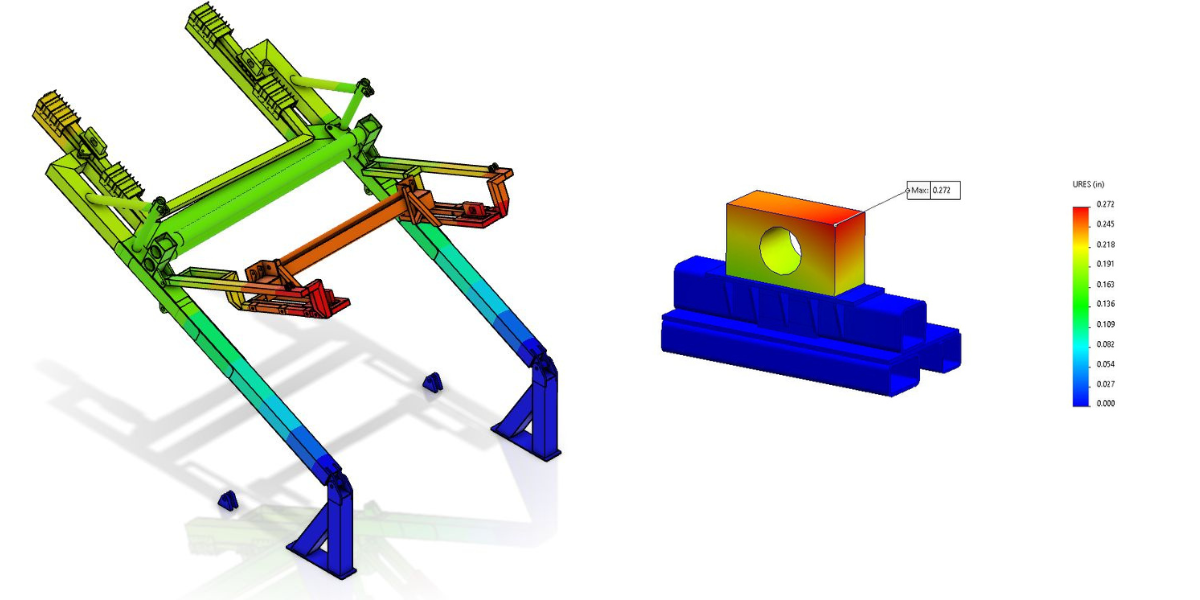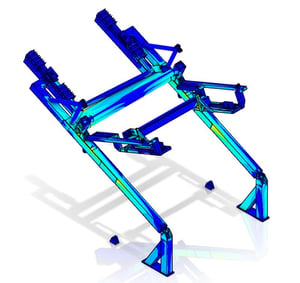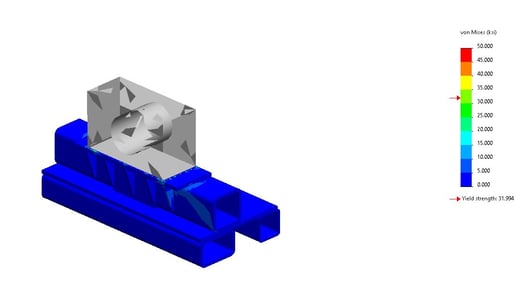2 min read
Redefining Engineering Precision with Finite Element Analysis (FEA)
PES Engineering
Jan 3, 2024

In the dynamic world of engineering, where precision and performance are non-negotiable, Finite Element Analysis (FEA) stands as a game-changer. At PES, we leverage FEA to bring unparalleled accuracy and efficiency to your projects. Let’s dive into what FEA is and how it can be a cost-saving powerhouse for your next engineering endeavor.
- Understanding FEA
- Why Use FEA In Your Engineering Projects?
- The Benefits of FEA With PES
- Why Choose PES for FEA Services?
Understanding FEA
FEA Defined:
Finite Element Analysis, a cornerstone in computational engineering analysis, involves breaking down complex problems into smaller, manageable elements. This technique uses advanced algorithms to simulate and analyze the behavior of structures under various conditions.
FEA in Practice:
At PES, our professional engineers utilize FEA to simulate structural, fluid, vibration, and thermal responses, predicting how systems will perform in real-world scenarios. The accuracy of our FEA models is paramount, integrating precise 3D CAD models with comprehensive meshing to represent structural, fluid, and thermal elements accurately.
Why use FEA in Your Engineering Projects?
Choosing FEA for your engineering projects is a decision that leads to unparalleled benefits. FEA provides a deep insight into your project's performance before any physical model is built. It helps in identifying stress points, potential weaknesses, and durability of materials under various conditions, thereby significantly reducing the risk of failure and associated costs. By enabling precise simulations, FEA facilitates informed decisions in design modifications, ensuring optimal performance and safety.
Whether it’s reducing the time and resources spent on prototyping or ensuring compliance with industry standards, FEA is an indispensable tool for engineers aiming for excellence in design and functionality. Embracing FEA means embracing a future where engineering solutions are not just viable but also cost-effective and robust.


The Benefits of FEA with PES
- Enhanced Design Accuracy: FEA allows for meticulous design verification, ensuring optimal performance and safety.
- Cost-Effective Design Cycle: By reducing the need for physical prototypes, FEA lowers both time and expense in the design process.
- Risk Mitigation: Early detection of potential issues leads to safer, more reliable products.
- Optimized Material Use: FEA aids in material selection and utilization, enhancing both cost efficiency and performance.
- Versatile Application: From pressure vessel design using SolidWorks to detailed AutoCAD fabrication drawings, FEA has wide-ranging applications.
Why Choose PES for FEA Services?
Our expertise in FEA is not just about running simulations; it's about delivering comprehensive solutions tailored to your specific needs. Whether it's validating a new design, optimizing an existing system, or tackling complex engineering challenges, PES is equipped to guide you from concept to construction.
Our FEA services are backed by advanced tools like SolidWorks for solid modeling and COMPRESS for pressure vessel design, ensuring high standards of engineering excellence. By partnering with PES, you gain access to a team dedicated to turning your visionary projects into reality while maximizing performance and minimizing costs.
Ready to harness the power of FEA for your next project? Contact us today and elevate your engineering solutions to the next level!
ABOUT PES
PES will always be dedicated to providing top-notch customer service to meet our industry demands. We set ourselves apart with our consistency and timely turnarounds. We are always committed to being responsive to our clients, KEEPING OUR PROMISES, making delivery schedules, and standing by our designs!
From concept, design, and engineering, to project management and integrity services. We are your gateway to your journey's engineering endeavors. Including oil & gas, hemp & CBD, and food industries.
Providing services focusing on Facilities Engineering, Turn-Key Solutions, Downhole Tools, Structural Engineering, Civil Engineering, Commercial Construction Design and Engineering, Direct Lithium Extraction, and Drafting & Design.



